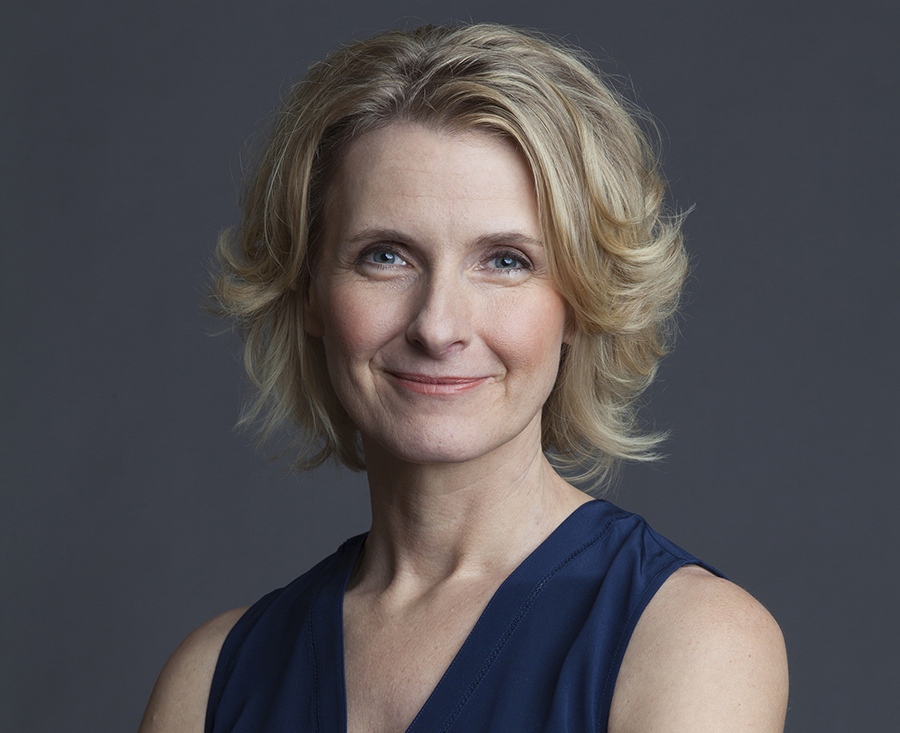Lessons for life from Elizabeth Gilbert
It’s 10 years since Elizabeth Gilbert wrote global bestseller 'Eat, Pray, Love'. Here, she talks to Psychologies editor Suzy Greaves about the hard-earned life lessons she now lives by

1. Forget about being fearless, and be curious about things instead
I wouldn’t recommend being fearless. I’ve met a few people who are fearless and they tend to be sociopaths or three year olds. I suggest we get more curious. The great thing about curiosity – you can do it in tiny doses and get such huge results. If you can wake up every single day and ask yourself ‘what tiny little thing am I curious about?’ and allow yourself to follow it even for a quarter of an inch, it will improve your life.
2. Be thankful for fear
I’m a very fearful person but I have learned to thank fear: ‘I understand you’re trying to protect me. You’re the ultimate bodyguard of my life.’ We don’t appreciate how fear has kept us alive this long. We’re all here because, at some point, our fear said ‘Don’t get in the car with that guy; don’t walk down that street; don’t go into the water – you’re not a strong enough swimmer.’ We owe our fear our lives. Start by saying ‘thank you, I appreciate all the ways you’ve saved my life. (But right now I don’t need you; I’m just trying to write poetry!).’ Create an ongoing friendship with fear.
3. Stop looking so hard for certainty
There are paradoxes and uncertainty, and as long as we keep looking for rules that will hold us safe from paradox and uncertainty, the more anxious we’ll feel.
4. Be patient with yourself
You don’t have to make a huge leap to make changes in your life. Everyone’s looking for the lightning strike, the epiphany, the-Moses-and-the-burning-bush moment. There is something very dramatic and exciting about that. But it doesn’t often happen. It’s more like a trail of breadcrumbs – it’s a scavenger hunt. I know people have read Eat, Pray, Love and see this big, dramatic journey, but there were three years of a collapsing marriage before I did anything. It wasn’t as if I came home one day, and slammed the door very cinematically and walked out with a squeal of tyres on the gravel drive. I cried every single day for three years, looking for other solutions, and cried for three years after. We all want the short cut. We long for ‘aha’ moments when we are given the answer. And yes, they do come. But then you still have to fix the 20 things that need to be fixed. What we need more than anything is patience and self-forgiveness – as well as being able to forgive others – because change is not an easy thing to do.
5. Stop waiting for a guarantee
I met a woman recently who wanted to start writing a book but was having trouble believing that the universe would actually give her the result that she wanted – a publishing deal. It might not, I said to her. There is no certainty. You do not know where the adventure is going to take you. If you want to know how the adventure ends, you’re never going to start it. ‘But what if I go on an adventure and find nothing?’ people ask. Show me when that ever happens. Please bring me the person who went on a sincere and open-hearted search and found nothing out about themselves. You may not find what you wanted to find – however, you will definitely know a great deal more about yourself at the end of the journey than at the beginning. Don’t avoid going on that journey because you might be disappointed. Who among us has been spared disappointed or frustration? It’s part of the journey.
6. Know the difference between quitting and surrendering
Quitting and surrender are two very different things. Quitting sounds like ‘I don’t feel like it, I’d rather watch Downton Abbey. It’s hard, I’m bored.’ Surrendering sounds like ‘I’ve come to the end of my power and have nothing else I can do and nothing else to give.’ Some of the most shameful experiences of my life came from quitting. The most beautiful experiences of my life came from surrendering. When you surrender, you recognise that you’re not the most powerful force in the universe; you let go and accept whatever happens next.
7. Be a creator, not just a bystander
In my latest book Big Magic, I encourage everyone to find some creative outlet. A journalist interviewed me and asked: ‘Aren’t you afraid that your book is going to cause lots of people who have no talent to create lots of shitty art?’ The arrogance of that question is staggering. There’s a presumption that only an elite are allowed to be creative. My concern is not that the world is filled with bad art, it’s more that the world might be filled with people who are not making or creating things in their life – and are just consumers or bystanders who are passively allowing things to happen to them.
8. Stop waiting and find your tribe
Someone recently asked how to find a mentor. When I started out, I created a peer group and I think a peer group can help you more than a mentor. If you get people together who are powerless, unsuccessful and striving, and you show up for each other then you become your own mentor group. That same group who all had crappy jobs and all wanted to be writers – like me – are still the first people who read my manuscripts 20 years later. If your tribe doesn’t exist yet, you may need to be the person to found the group. You might be the tribal leader. If the thing you need doesn’t exist, create it. That’s the ultimate creativity.
9. Keep showing up
When we try and don’t succeed, it hurts and it's awful. But the worst response is ‘If this is what it feels like to give 100 per cent, I’ll never do it again. I’ll never trust/tell anyone my dreams/love’. If you say that, what’s the rest of your life to be? You’re going to be in death’s waiting room, paying bills till your time’s up. If you can have happy moments, you’re not done yet. Keep showing up. There’s no success more meaningful than being a curious and engaged human being.
10. Don’t do what I did, ask what I asked
Many people write for advice on replicating the Eat, Pray, Love journey. They believe the geographical journey will give them the same result. What’s the name of the Naples pizzeria, they ask? But it’s not about pizza, it’s about the questions we ask. Ask, what do I want to do with my life? What do I want more of? Less of? When was I happiest? What was I doing then? Who makes me feel the world is full of possibilities? Who doesn’t? Ask the right questions; become a scientist of your own experience.
Eat, Pray, Love made me do it: Life Journeys inspired by the best-selling memoir (Bloomsbury, £8.99) is out now









